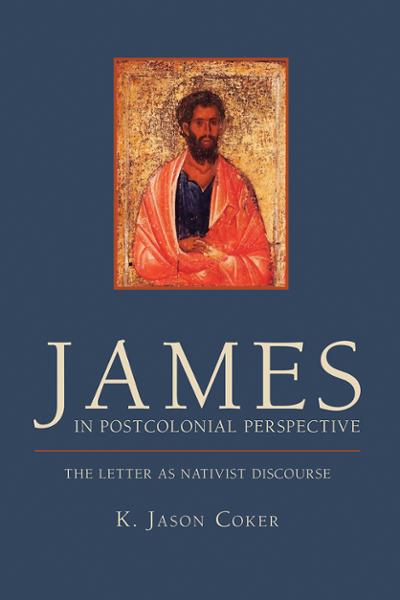By Jeff Brumley
What scholars do in seminaries and minsters do in the field may seem like polar opposite endeavors.
Well, Jason Coker says, they aren’t.
“I never separate the academics from practical ministry,” said Coker, pastor of Wilton Baptist Church in Wilton, Conn.
Coker knows a thing or two about balancing the the worlds of academia and ministry.
He’s attracted attention in recent years through a rural poverty initiative he started in his hometown of Shaw, Miss. The project seeks to heal the wounds of poverty, lack of education and racism in the Delta community. His Cooperative Baptist congregation is also known for its outreach to the largely unchurched Connecticut community.
Now Coker is stretching his academic interests with his newly published book James in Postcolonial Perspective: The Letter as Nativist Discourse.
It may seem like an unusual project for a minister known for missional ministry. But Coker is adamant the two are not mutually exclusive.
“The academy can learn a lot from the church, and the church can learn a lot from the academy,” he said.
And that goes for the book, too, Coker said.
‘Casting a new light’
The text, which he worked on for the better part of a decade, critiques the New Testament book of James and its author. James’ theology and worldview also compare with those of the Apostle Paul, who was often at odds with his Jerusalem-based counterpart.
It’s an issue right up Coker’s alley. Academically, his focus has been on biblical and New Testament studies in general with a particular expertise on the often tense relationship between James and Paul.
“I am casting a new light on that relationship,” he said.
Following another scholar’s lead, Coker said his text examines the way the ministry and theology of James and Paul were responses to Roman cultural, political and economic practices.

James wrote from a standpoint of Jewish purity, placing an importance on obedience to the law and covenant. He understood the early Christian movement to be very much a Jewish movement, Coker said.
Paul sought a radical departure from those beliefs as he took the gospel to gentiles.
And the fact that the early church saw fit to include both perspectives in the New Testament can serve as a model for modern-day Christians who cannot agree with each other.
“We have lost the capacity to do that with each other,” he said. “Especially in American Christianity and politics, we cut each other off and call each other names and forsake fellowship with each other.”
Uncovering such perspectives through research and writing is one way academics can influence churches and individuals, Coker said.
“Here you have two guys on different pages in fundamental theology and yet they are in our canon,” he said. “That speaks to the capacity of historic Christianity” to be a model for Christians today.
‘Making your faith count’
Coker’s research also unearthed lessons that, if followed, could lend renewed respect for Christianity among Millennials and also for the so-called “nones” — those with no religious affiliation — and “dones” — those who say they’re finished with church.
Portions of all three groups are known for their rejection of institutionalized religion and Christianity, Coker said. James’ teaching about the early movement would be in sync with those attitudes.
Many Millennials and others also are turned off by the inability of Christians to get along with each other.
The relationship between James and Paul, on the other hand, suggests “a plurality from the very beginning and I think that would be appealing to a postmodern philosophy,” he said.
James and Paul also demonstrate what it means to be truly transformed by faith — something many moderns yearn for and feel they never achieved in organized religious settings, Coker said.
“Their faith changed their lives and radically reoriented their understanding of their lives and how they related to the world,” Coker said of the two apostles.
Many Christians and others today would also appreciate James’ harsh critique of labor and the distribution of wealth in the Roman empire. Coker said the apostle condemned how wealth was used to destroy the poor.
James and Paul both argued for the necessity to take care of the most vulnerable in society, he added.
That’s where it especially ties into Coker’s ministries in Mississippi and Connecticut.
That and in learning how to get along with those he disagrees with theologically and politically.
“The implication of the book is about being in dialogue with people you disagree with and making your faith count in the real world,” he said.
